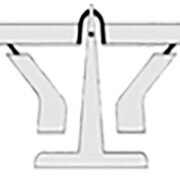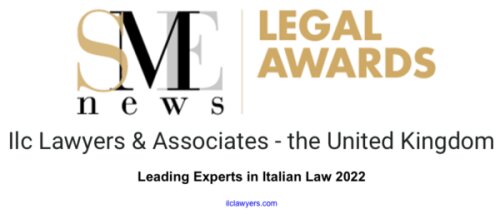Best Sanctions & Export Controls Lawyers in Palermo
Share your needs with us, get contacted by law firms.
Free. Takes 2 min.
List of the best lawyers in Palermo, Italy
About Sanctions & Export Controls Law in Palermo, Italy
Sanctions and export controls are critical areas of law that affect individuals and businesses involved in the international movement of goods, services, and technology. In Palermo, Italy, these laws are influenced by Italy’s national legal framework, the European Union’s regulations, and relevant international obligations. The aim of sanctions is usually to achieve foreign policy or security objectives by restricting transactions with certain countries, entities, or individuals. Export controls, meanwhile, regulate the movement of sensitive items such as dual-use goods, military equipment, technology, and software to prevent their misuse.
Palermo, being a major city in southern Italy with a significant port and commercial activities, is subject to increased scrutiny regarding sanctions and export controls, especially considering its role in trade and logistics. Compliance with these complex regulations is essential for anyone engaging in cross-border trade or business.
Why You May Need a Lawyer
There are many scenarios where individuals and companies in Palermo may require legal assistance with sanctions and export controls issues. Some common reasons include:
- Uncertainty about whether specific business transactions violate Italian or EU sanctions or export regulations
- Receiving government notices about possible violations and needing to respond or defend against enforcement actions
- Seeking guidance on setting up compliance programs for businesses engaged in import and export activities
- Handling shipment delays or detentions at customs due to possible sanctions or export control concerns
- Managing business relationships with partners in countries subject to restrictive measures
- Understanding licensing requirements and procedures for exporting certain goods or technologies
- Dealing with frozen funds or assets as a result of sanctions enforcement
- Training staff and ensuring ongoing compliance to minimize risks of violations
Lawyers specializing in this field can help navigate the complex laws and regulations, reduce legal risks, represent clients before authorities, and advise on the most compliant ways to conduct international business.
Local Laws Overview
In Palermo, sanctions and export controls are governed by multiple layers of law:
- Italian national laws and regulations implementing United Nations and European Union measures
- Directly applicable EU regulations, especially on sanctions and dual-use goods
- Customs regulation and enforcement by Italian agencies such as Agenzia delle Dogane e dei Monopoli (Customs and Monopolies Agency)
- International treaties and obligations that Italy has ratified
The most commonly relevant legal instruments include:
- EU Council Regulations on restrictive measures (sanctions) against certain countries, entities, or individuals
- EU Dual-Use Regulation governing the export of items with both civilian and military applications
- National laws such as Law 185/1990 regarding the export, import, and transit of military goods
The regulatory environment is subject to frequent changes, especially in response to international developments and new EU decisions. Non-compliance can lead to significant administrative and criminal penalties, asset freezes, loss of business licenses, and reputational harm.
Frequently Asked Questions
What are sanctions in the context of Italian and EU law?
Sanctions are legal measures imposed to achieve foreign policy or security goals. They may include trade restrictions, asset freezes, bans on providing certain services, or travel bans targeting specific countries, entities, or individuals. Italy implements both its own sanctions and those decided by the European Union and the United Nations.
What are export controls and who needs to comply?
Export controls regulate the export of sensitive goods, technologies, and services, especially those with potential military uses or proliferation risks. Any individual or business involved in the export or transfer of such items from Palermo must comply, regardless of company size.
Are there specific licenses needed for exporting goods from Palermo?
Yes, depending on the nature of the goods and their destination, exporters may need to obtain specific licenses, especially for dual-use goods, military items, or technology subject to control by EU or Italian laws.
What are the penalties for violating sanctions or export control laws?
Penalties can range from administrative fines to criminal prosecution, including imprisonment in serious cases. Additional consequences include confiscation of goods, loss of export privileges, and frozen assets.
How do I find out if my business partner is subject to EU or UN sanctions?
Businesses should consult official sanction lists published by the EU and UN. Legal professionals can assist with due diligence and screening processes to ensure compliance.
Is technology transfer also controlled?
Yes, the transfer of controlled technology, including by electronic means, is regulated and may require prior authorization depending on the nature and sensitivity of the technology.
Can sanctions impact personal bank accounts or business finances?
Yes, if an individual or entity is listed under sanctions, their funds and financial resources can be frozen in Italy, affecting both personal bank accounts and business finances.
What should I do if my shipment is detained by customs in Palermo?
If your shipment is held due to possible sanctions or export control concerns, contact a lawyer immediately. They can help clarify the issues, communicate with customs authorities, and work to resolve the matter efficiently.
How frequently do sanctions and export control rules change?
These rules can change often in response to political developments or security concerns. It is important to keep updated or seek specialist advice regularly.
What is dual-use and why is it important?
Dual-use refers to items, materials, or technology that can be used for both civilian and military applications. Their export is especially controlled due to potential security risks, and strict compliance is mandatory.
Additional Resources
For individuals and businesses seeking further information or guidance regarding sanctions and export controls in Palermo, the following resources are useful:
- Agenzia delle Dogane e dei Monopoli - Italian Customs Agency responsible for enforcing export control laws and customs regulations
- Ministero degli Affari Esteri e della Cooperazione Internazionale - Ministry of Foreign Affairs handles licensing and coordination of international sanctions
- European Commission - Sanctions Map - Provides up-to-date information on EU sanctions regimes affecting Italy
- Chamber of Commerce of Palermo - Offers export assistance services and information for local businesses
- Italian Trade Agency (ICE) - Supports international trade activities and compliance advice
Local and international law firms with expertise in sanctions and export controls can also provide valuable advice and representation.
Next Steps
If you suspect a sanctions or export control issue, or if you are unsure about the regulations affecting your trade or business in Palermo, it is important to act promptly:
- Document any notices, customs communications, or regulatory contacts you receive
- Consult with a legal professional specializing in sanctions and export controls to assess risks and determine compliance obligations
- Request a thorough review of your businesses’ operations, counterparties, and products to identify any potential exposure
- Engage expert advice before entering new international markets or transactions involving sensitive goods or technology
- Stay informed about developments in Italian and EU regulations by monitoring official resources and seeking periodic legal updates
Taking proactive steps by involving a qualified lawyer will help you avoid costly mistakes and ensure the legal security of your activities in Palermo and beyond.
Lawzana helps you find the best lawyers and law firms in Palermo through a curated and pre-screened list of qualified legal professionals. Our platform offers rankings and detailed profiles of attorneys and law firms, allowing you to compare based on practice areas, including Sanctions & Export Controls, experience, and client feedback.
Each profile includes a description of the firm's areas of practice, client reviews, team members and partners, year of establishment, spoken languages, office locations, contact information, social media presence, and any published articles or resources. Most firms on our platform speak English and are experienced in both local and international legal matters.
Get a quote from top-rated law firms in Palermo, Italy — quickly, securely, and without unnecessary hassle.
Disclaimer:
The information provided on this page is for general informational purposes only and does not constitute legal advice. While we strive to ensure the accuracy and relevance of the content, legal information may change over time, and interpretations of the law can vary. You should always consult with a qualified legal professional for advice specific to your situation.
We disclaim all liability for actions taken or not taken based on the content of this page. If you believe any information is incorrect or outdated, please contact us, and we will review and update it where appropriate.











